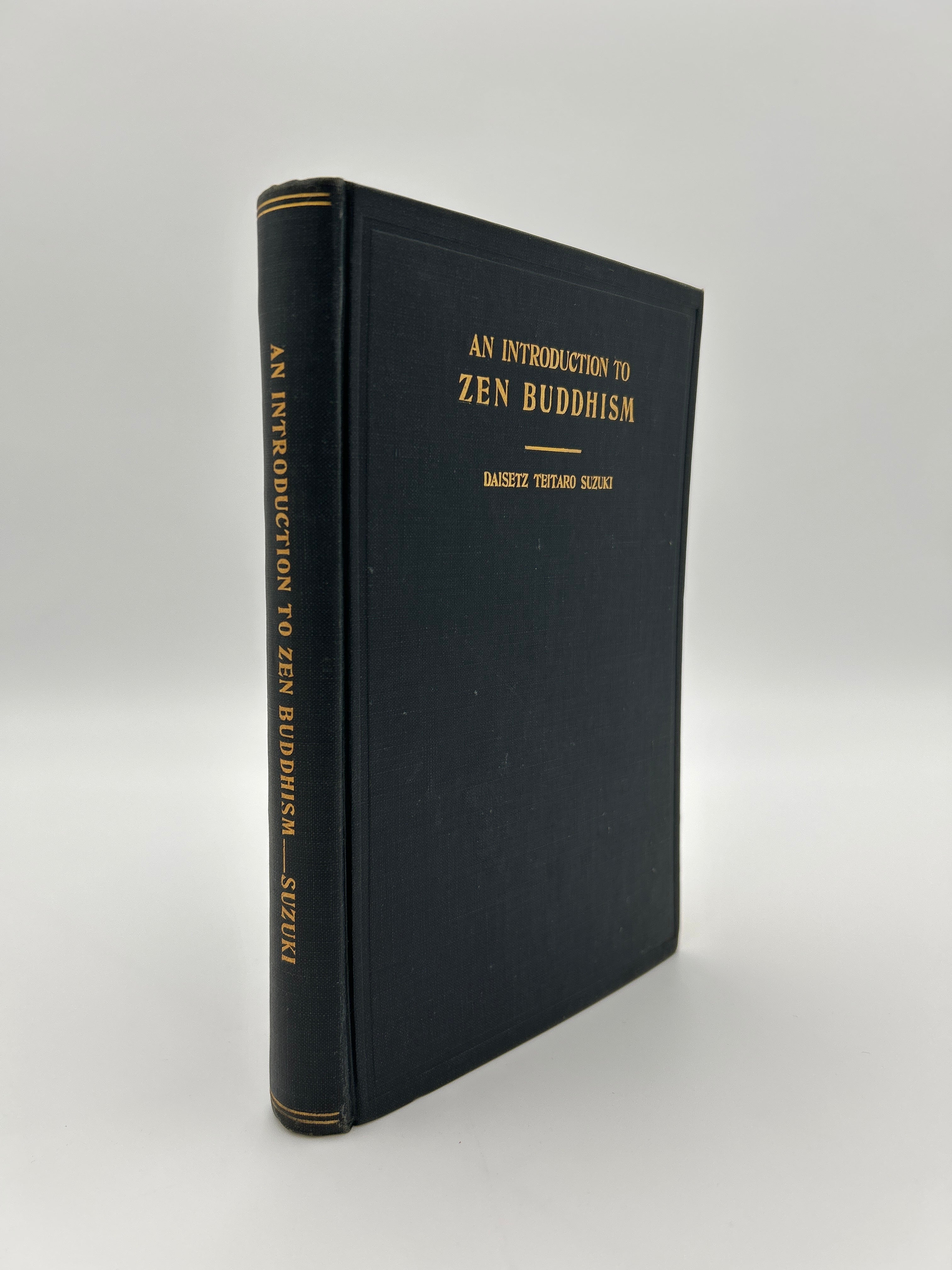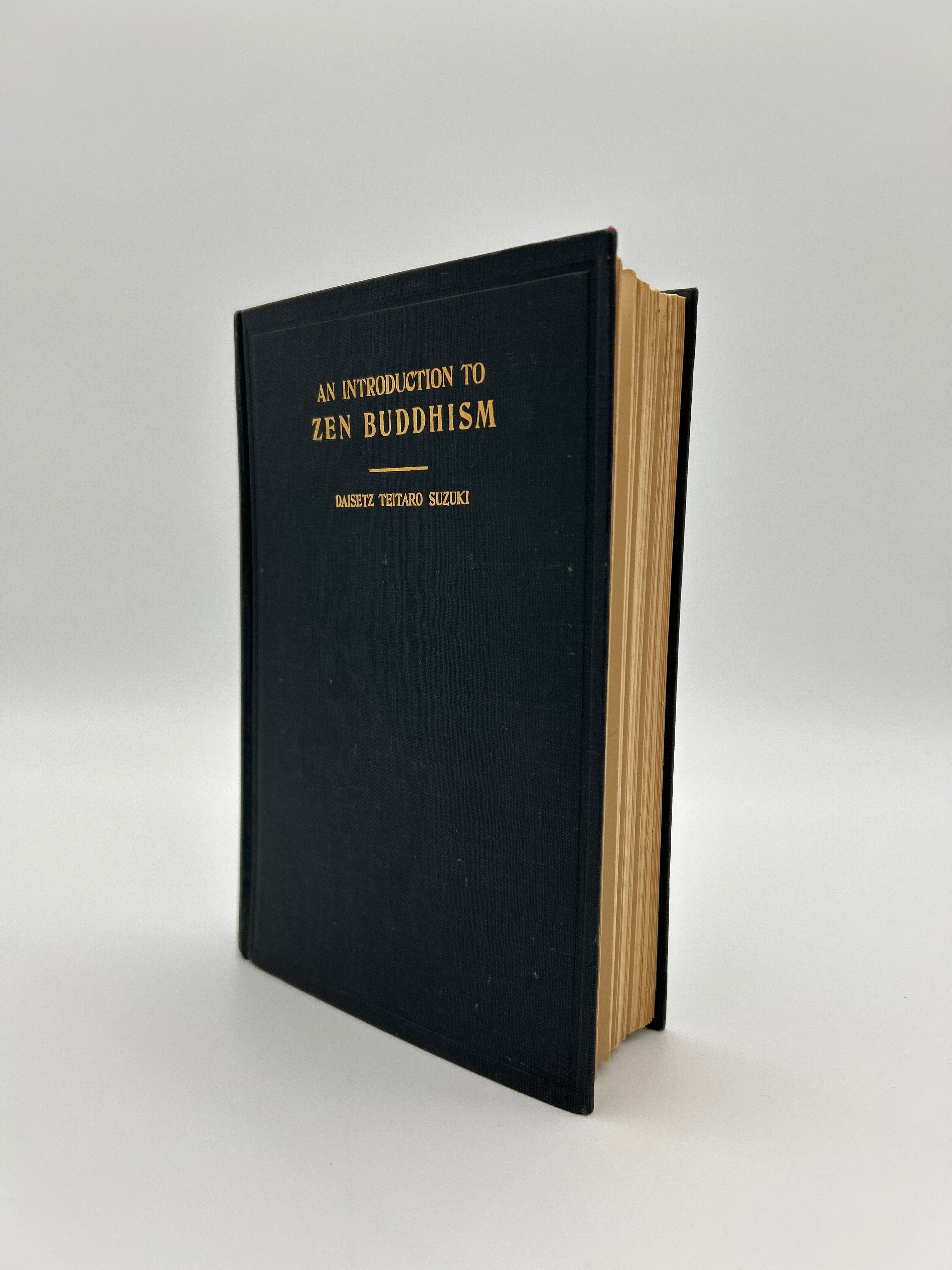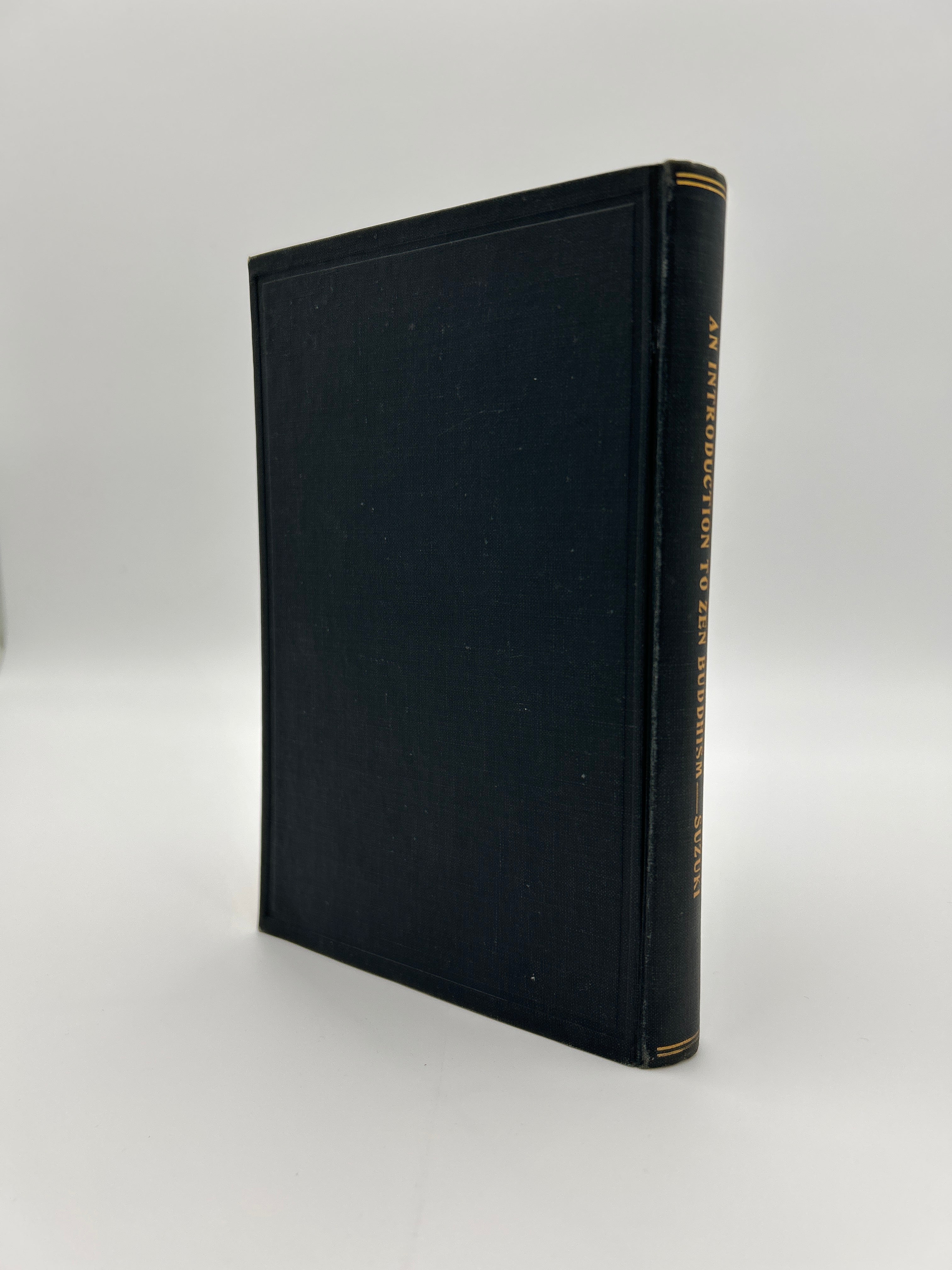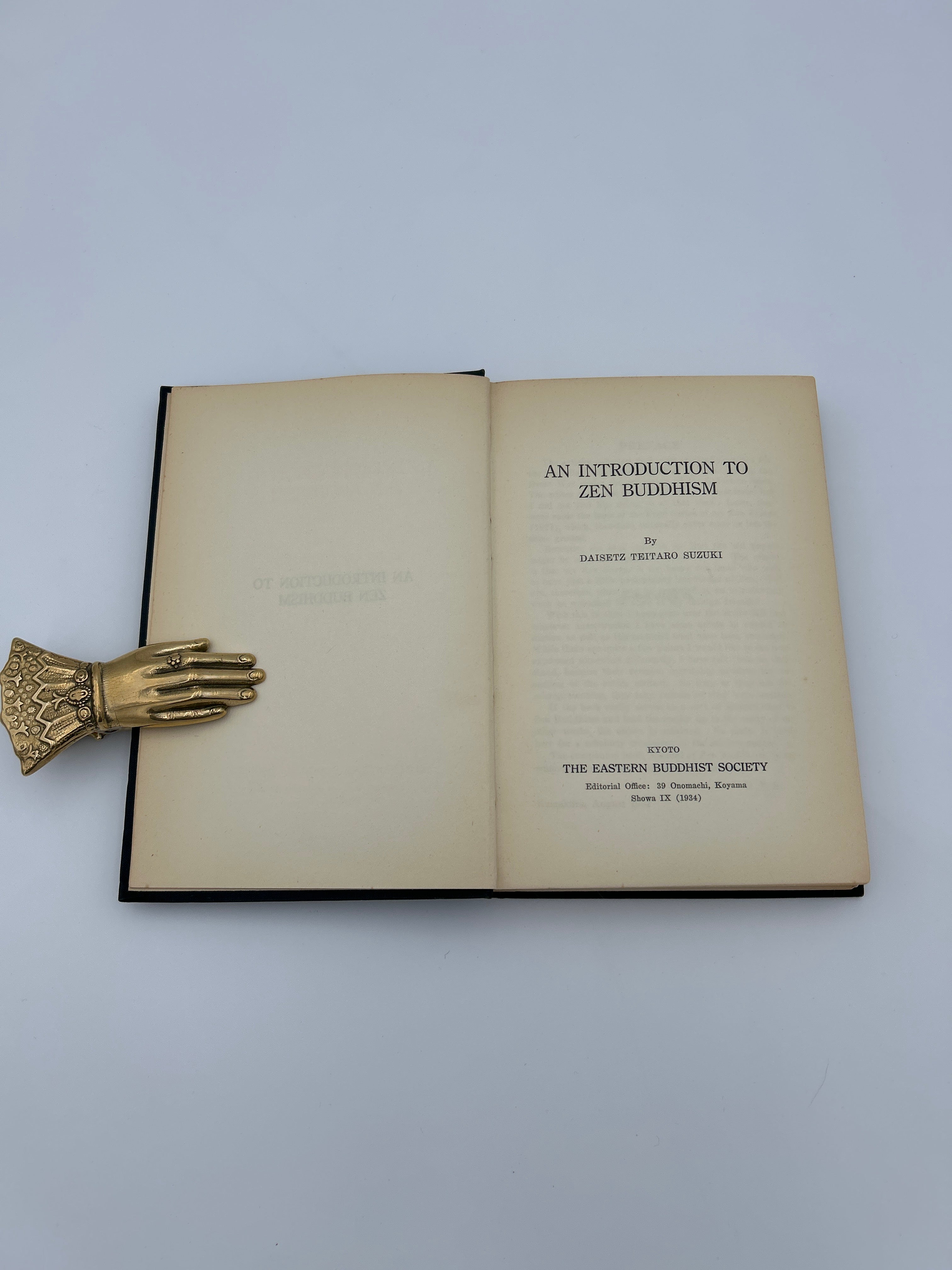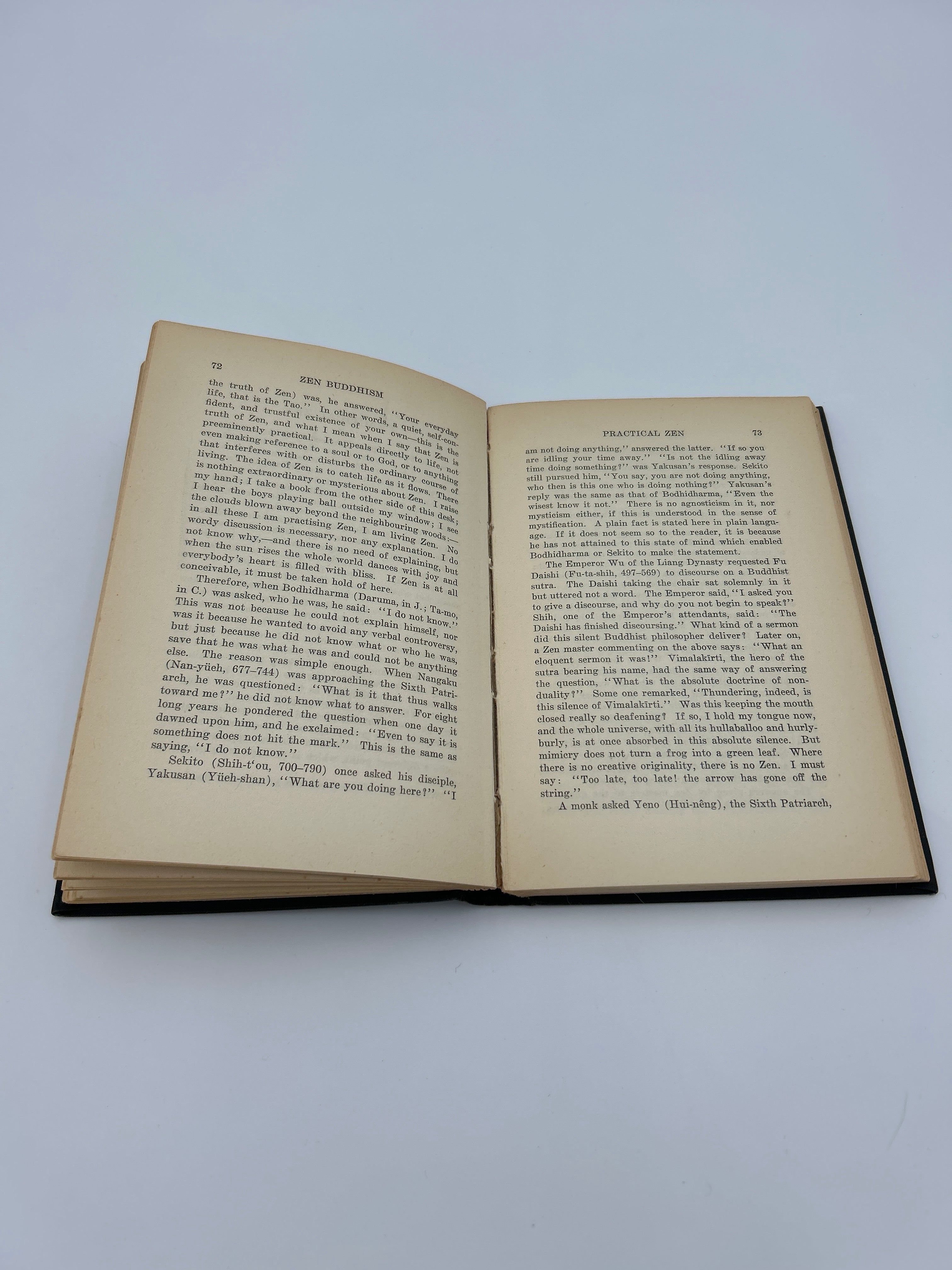An Introduction to Zen Buddhism
Couldn't load pickup availability
5b Daisetz Teitaro Suzuki, An Introduction to Zen Buddhism, The Eastern Buddhist Society: Kyoto, 1934, First Edition
Notes
Daisetz Teitaro Suzuki (1870–1966) was a Japanese scholar, writer, and translator who was instrumental in introducing Zen Buddhism to the Western world. He presents Zen “as a wonderfully unthinkable way of being in the world, free of myth, ritual, rules, intuitions, hierarchy, language, [and] logic.” Born in Kanazawa, Japan, Suzuki studied classical Chinese, Buddhist philosophy, and Zen teachings under Rinzai Zen master Shaku Soen. His deep understanding of Zen, combined with his linguistic skill, allowed him to convey its profound yet often paradoxical concepts to a Western audience. This work grew out of essays Suzuki wrote during World War I and published in the Tokyo magazine New East. Suzuki became an international figure through his translations of Zen texts and his clear, insightful explanations of Zen practice and philosophy.
Suzuki’s An Introduction to Zen Buddhism (1934) is one of his most influential works, presenting Zen as a direct, experiential approach to understanding reality, free from intellectual or dogmatic constraints. The book’s accessible style and profound insights earned it widespread acclaim, including a foreword by Carl Jung in later editions, which highlighted its influence on both Eastern and Western thought. Suzuki’s teachings resonated deeply with the Western avant-garde, inspiring writers, artists, and intellectuals, including Jackson Pollock, John Cage and Jack Kerouac. Kerouac personally tried to secure Suzukis blessing after publishing his novel, The Dharma Bums.
Suzuki’s influence extended beyond literature and the arts; his ability to bridge Eastern and Western thought garnered international respect. In recognition of his contributions, he was nominated for the Nobel Peace Prize in 1963 for his role in introducing Zen Buddhism to the Western world and fostering cross-cultural understanding.
Description
Original black cloth octavo with gilt lettering on the front board and spine. Trivial spotting to the fore-edge and general browning to interior pages. Excellent condition overall.
